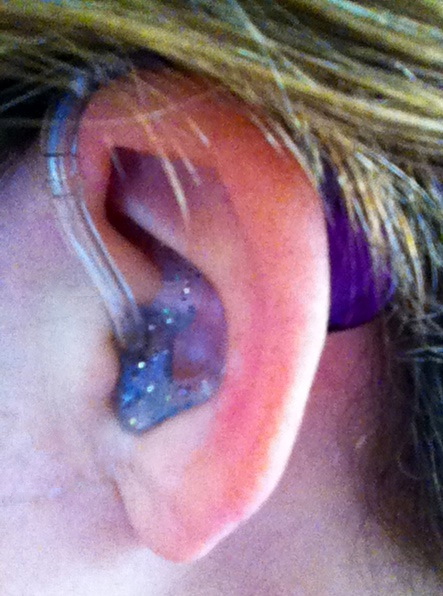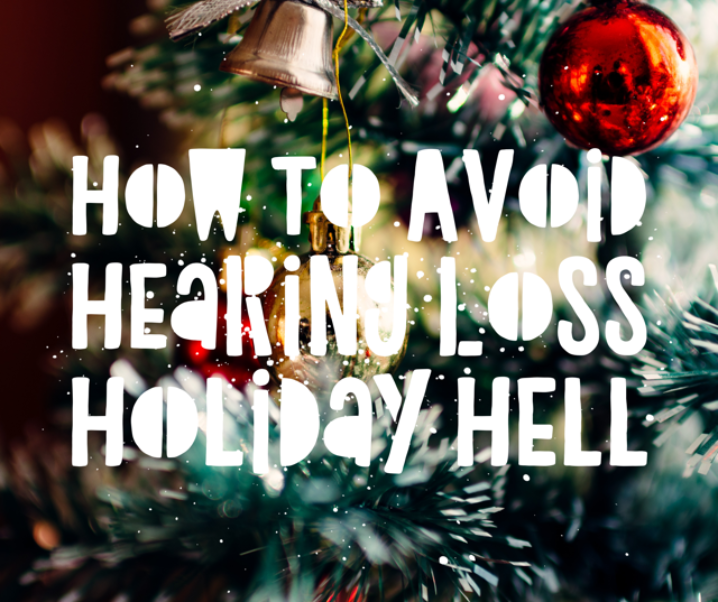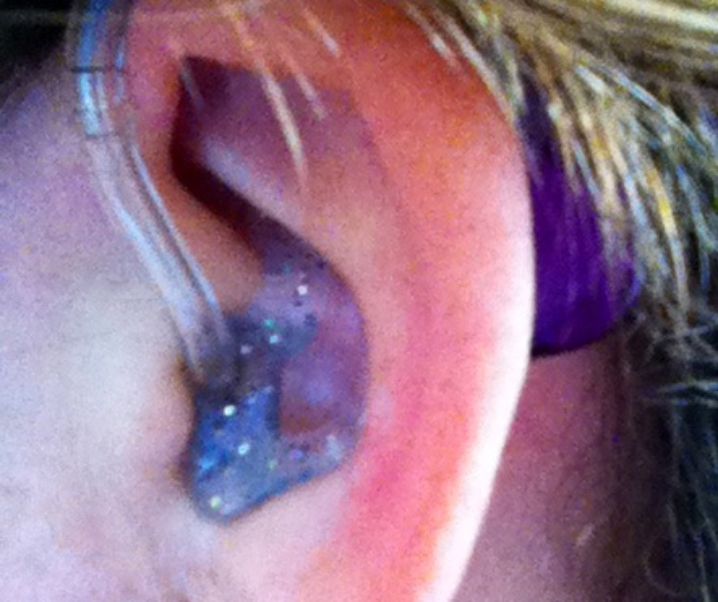Hearing aids can make noises just for you. They’re not your imagination, but a hearing aid “alert”.
If you’re a hearing aid wearer or someone in your household is, you know hearing aids can make weird noises.
As I mentioned in a recent article 10 Reasons Your Hearing Aid is Whistling, if there’s a problem with the hearing aid, it can get pretty noisy. Conveniently, this can get the attention of the deaf or hard of hearing person wearing it (and/or incidentally others in the area) that it needs some help.
But did you know that your hearing aid will ring at times but only you are supposed to hear it?
Yep. These hearing aid sounds of ringing, buzzing, chirping, honking even are designed to be alerts for the wearer only.
It’s your hearing aid’s way of telling you something – discreetly (and intentionally)!
Why do I need alerts?
Of course, these noises can be just as annoying. It doesn’t always feel discreet to me. Someone can *discreetly* pinch the skin on the back of my arm, but it doesn’t make it any less alarming. In fact, you might feel insane since you’ll hear these random sounds against your normal backdrop. Since others will not hear all the sounds you are, they’d probably be in agreement that you are nuts if you’re looking around saying, “What was that?”.


Now, if you’ve been wearing hearing aids as long as I have (40..*cough-cough* years), you’ll know that these alerts were not standard until digital hearing aids were in more widespread use.
So when I got digital hearing aids about 20ish years ago and I heard these weird sounds in my own hearing aid, I took umbrage. My audiologist never mentioned this new stuff. I mean, do they expect people to read the product manuals? Also, I didn’t sign up for alerts. Why do I need alerts?
Honestly, I’m like an old coot with my hearing aids. I was fine with (pre-digital) analog. I turned it on and off and changed the battery when the sound went out. That was easy. But, no. The world got all “fancy” on me. Now I gotta figure out all this tech crap to get sound from a hearing aid. EYE ROLL.
With the sands of time, I’ve gotten used to it.
If you are new to hearing aids you won’t have that pre-digital nostalgia, so this won’t matter at all. But I figured this could help you too if your audiologist also seems to believe preparation is the thief of joy.
Here’s 5 reasons your hearing aid makes noises no one else will hear.
You just turned your hearing aid on
When you initially close the battery compartment, digital hearing aids ring or play a little chime to alert the wearer that it’s in fact, on. It’s a tester noise. You know, like when someone taps the microphone at an assembly in the middle school auditorium.
No mere “Puh puh puh” here, though. I believe you might have a choice of tones, but mine is actually music. For all my crankiness, it’s pretty lovely. It has an ascending “bong, bong, BONG!” – it’s nice. It’s got the optimism of a hippie strumming Morning Has Broken; the pomposity of the bugle player squawking out Reveille – welcoming you to a new day.
I often salute back with a grand “wha-la” gesture or alternate playing symphony conductor.
A novelty to the new wearer, your hearing aid is ringing in a pleasant, functional way – just for you.
You turned on a Smart TV
My audiologist (not the one that sold me the hearing aid) thought I was NUTS when I told him I heard music when I turned on my TV. Apparently, I’m not the only one that doesn’t read user manuals.
Upon further investigation, I learned (no thanks to him) that it’s because of the TV Connector setting in the hearing aid which plays an alert when a compatible TV is turned on.
Some hearing aids are programmed to optimize the TV listening experience for the wearer (and I suspect – the rest of the house) allowing the wearer to adjust their own volume. Since I don’t personally use the volume when I’m watching TV, I’ve only noticed the chime.
This may or may not be something you feel will serve you and if it’s the latter, you can probably turn it off by consulting the earlier-referenced manual you received when you purchased it (yes, I swear you got one) or you can look it up online.
Either way, I felt it was important to mention here to tell you aliens are not trying to contact you. Not through the TV, anyway.
You’re choosing a listening program
If you have different “listening programs” available on your hearing aid, you may be able to manually switch to them as needed by pushing the program button. The hearing aid will beep a certain amount of times or play a specific chime to let you know which program is which.
Personally, I’ve only used the standard default program (typical listening setting) and the t-coil setting for connecting to an assistive listening system (ALS) like a hearing loop or a personal FM loop device (more on this below). But there are other programs you could develop with your audiologist for large space acoustics like in concert halls or theaters.
Anyway, if you are changing the listening program manually, you’re most likely to know what the noise is. I would suspect if it was happening automatically, you should check with your audiologist to be sure it’s not the above-mentioned aliens.
You’re in a big business building with bad lighting
Hearing aids can sometimes produce a static sound when you come into an area with certain electronic appliances or fluorescent lighting. Warehouses, large buildings with lots of electronic equipment. In layman’s terms: these types of environments can create an interference and your hearing aids go berserk.
This used to happen to me at Wegman’s years ago. I would be heading toward the back where they have the big refrigerators to get the milk when suddenly the sound would cut out it seemed as though a swarm of buzzards was following me.
This can also happen if you are trying to connect to assistive technology systems (ALS) like FM, Infrared or hearing loop systems with your hearing aid’s telecoil. ALS are designed to give the hearing aid user more volume and clarity of the speaker. The Hearing Loss Association of America has a wonderful breakdown on all the types of Hearing Assistive Technology including ALS and devices.
Whenever I’ve experienced static connecting to these, usually my t-coil / program is on and ready but the system isn’t quite “on” yet. So if this happens to you, try waiting a bit. Usually this means a few minutes in buzzy-limbo.
Battery is dying
This sound will differ from all the others. And I think it’s purposely UNpleasant if not downright jarring. I believe they can be programmed with different sound frequencies to best match the wearer but I think the main idea is to make you want to change it quickly.
Unfortunately, mine sounds like a car horn: HONK, HONK!
It completely surprises me every time! It’s so out of place. I could be having a nice lunch in a quiet, dainty tea room one minute and (Honk honk!) jumping up the next – absurdly worried for a split second I double parked out front.
Or if I’m driving and listening to music, it cuts the sound out to deliver its’ own: Honk honk!
Which of course causes me to dirty-look at the next driver I see. Yeah, honk you too, buddy.
So if you find yourself saying “What’s that random noise?” that no one else seems to hear, it could be your hearing aid alerting you to change the battery.
The key is to do it as soon as humanly possible, because trust me when I say it will not shut up until you do. Or if you do make it through its’ little tantrum it’s only because it’s now dead. So, it’s quiet at that point, but you know – SO IS EVERYTHING ELSE.
Final Thoughts
Hearing aids will make noises that no one else hears but you – and that’s intentional. These alerts can be helpful or annoying. If it’s the latter, reach out to your audiologist to see if they can be adjusted or turned off. But like all things on this journey, give your hearing aids a real chance to see what they do and don’t do for you.
But rest assured, there really is noise coming from your hearing aids!
Cheers!










What do you think?